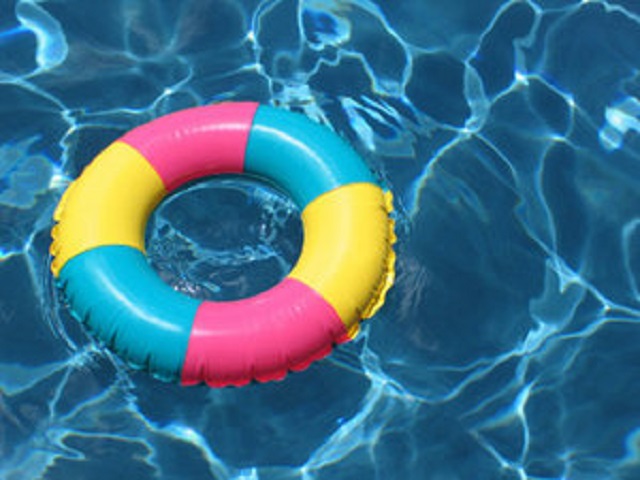We want people to have a good time, but most importantly, we want them to be safe.”Sheriff Matt Gentry
CULLMAN – Summer vacation is here and that means kids all over Cullman County will be out in the hot weather enjoying the break. Swimming pools have been uncovered, cleaned up and are ready for use while Smith Lake and other swimming holes in the area invite people of all ages to enjoy and cool off. Many families will also be headed to the beach in the next couple of months.
While swimming may seem to come naturally to some people, everyone needs to be careful and understand that the water can be extremely dangerous. Nationwide, drowning is one of the leading causes of accidental deaths of children and adolescents. Drowning is a silent killer. When a child drowns, you won't hear a cry or even a splash. It can happen very quickly.
“I am unsure of how many drowning deaths we’ve had over the past five years,” said Jeremy Kilpatrick, Cullman County coroner. “In 2015 there was one drowning (suicide) and so far this year there have been three.”
"We want people to have a good time,” said Cullman County Sheriff Matt Gentry, “but most importantly, we want them to be safe. Don’t drink and drive, and don’t drive distracted. With more people out for the holiday and summer vacation, there’s going to be an increased chance for accidents, on roads and on the water. We also ask people who are going to be on the lake at night to make sure all their lighting equipment is working to prevent an accident."
While Gentry gives some great advice, the American Red Cross has more information about water safety. They suggest you make water safety your priority. They also urge everyone to prevent unsupervised access to the water and maintain constant supervision. Know what to do in an emergency. Also, if a child is missing, check the water first. Seconds count in preventing death or disability.
http://www.redcross.org/get-help/prepare-for-emergencies/types-of-emergencies/water-safety
Make Water Safety Your Priority
- Swim in designated areas supervised by lifeguards.
- Always swim with a buddy; do not allow anyone to swim alone. Even at a public pool or a lifeguarded beach, use the buddy system!
- Ensure that everyone in the family learns to swim well. Enroll in age-appropriate Red Cross water orientation and Learn-to-Swim courses.
- Never leave a young child unattended near water and do not trust a child’s life to another child; teach children to always ask permission to go near water.
- Have young children or inexperienced swimmers wear U.S. Coast Guard-approved life jackets around water, but do not rely on life jackets alone.
- Establish rules for your family and enforce them without fail. For example, set limits based on each person’s ability, do not let anyone play around drains and suction fittings, and do not allow swimmers to hyperventilate before swimming under water or have breath-holding contests.
- Even if you do not plan on swimming, be cautious around natural bodies of water including ocean shoreline, rivers and lakes. Cold temperatures, currents and underwater hazards can make a fall into these bodies of water dangerous.
- If you go boating, wear a life jacket! Most boating fatalities occur from drowning.
- Avoid alcohol use. Alcohol impairs judgment, balance and coordination; affects swimming and diving skills; and reduces the body’s ability to stay warm.
Prevent Unsupervised Access to the Water
- Install and use barriers around your home pool or hot tub. Safety covers and pool alarms should be added as additional layers of protection.
- Ensure that pool barriers enclose the entire pool area, are at least 4-feet high with gates that are self-closing, self-latching and open outward, and away from the pool. The latch should be high enough to be out of a small child’s reach.
- If you have an above-ground or inflatable pool, remove access ladders and secure the safety cover whenever the pool is not in use.
- Remove any structures that provide access to the pool, such as outdoor furniture, climbable trees, decorative walls and playground equipment.
- Keep toys that are not in use away from the pool and out of sight. Toys can attract young children to the pool.
Maintain Constant Supervision
- Actively supervise kids whenever around the water—even if lifeguards are present. Do not just drop your kids off at the public pool or leave them at the beach—designate a responsible adult to supervise.
- Always stay within arm’s reach of young children and avoid distractions when supervising children around water.
Know What to Do in an Emergency. If a child is missing, check the water first. Seconds count in preventing death or disability.
- Know how and when to call 9-1-1 or the local emergency number.
- If you own a home pool or hot tub, have appropriate equipment, such as reaching or throwing equipment, a cell phone, life jackets and a first aid kit.
- Enroll in Red Cross home pool safety, water safety, first aid and CPR/AED courses to learn how to prevent and respond to emergencies.
Swimming lessons are very important, especially for children. Thankfully the Cullman Wellness and Aquatic Center will be offering swimming lessons to the public beginning June 6.
GROUP SWIM LESSONS:
Session I: June 6 – 16
Session II: June 20 – 30
Session III: July 11 – 21
Must be at least 3 years old. Lessons are Monday-Thursday for 2 weeks at 8 a.m. or 9 a.m. Cost is $70 per child; members of the Cullman Wellness & Aquatic Center will receive a discount. Registration will take place at the Cullman Wellness & Aquatic Center.
PRIVATE SWIM LESSONS:
Offered anytime during operational hours at the Cullman Wellness & Aquatic Center. Thirty-minute lessons are $20 per child. Preferred to be 3 years old. Registration is at the Cullman Wellness & Aquatic Center.
The Cullman Wellness and Aquatic Center is located at 1636 Field of Miracles Drive SW, Cullman, AL 35055. For more information, call 256-775-7946.
Enjoy the summer break – make fantastic memories with your children. Pack a picnic lunch and go swimming with your family and friends. Please take our advice and be safe in all that you do, especially around the water. Drowning happens, but it doesn’t have to!



























